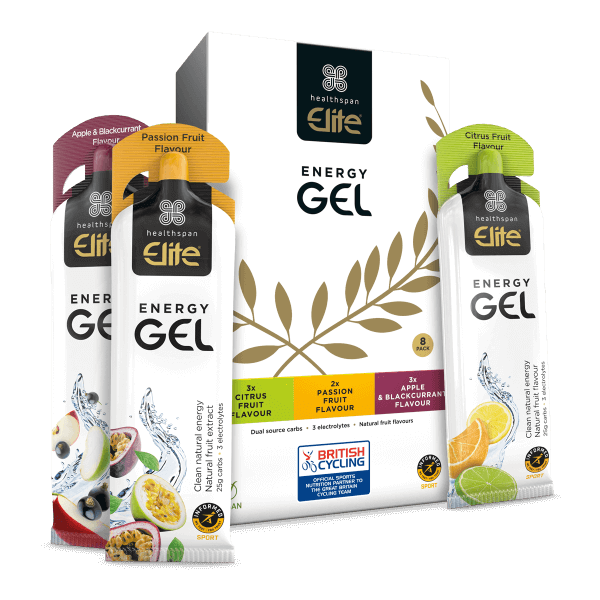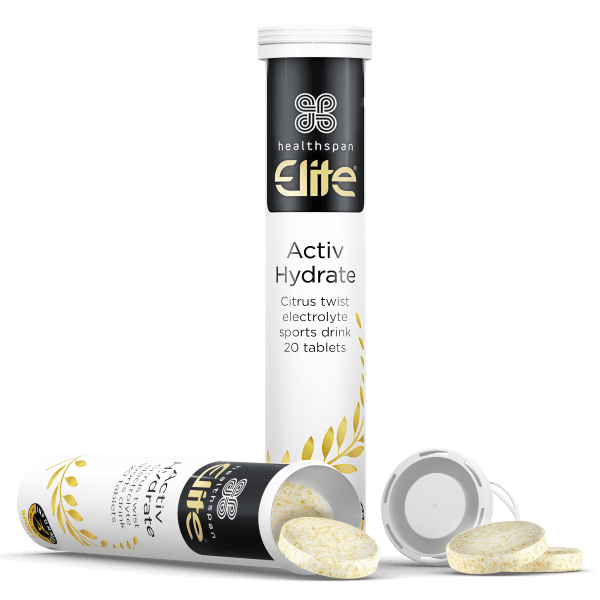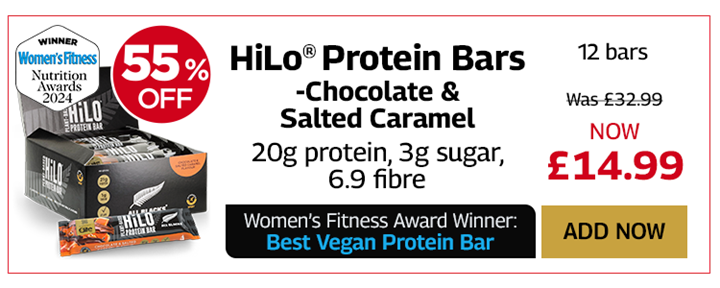Nutrition is vital for performance. Sports nutritionist Rob Hobson outlines the food and drink you need to win, from training to race build-up to the day itself.
🕒 4 min read
Mountain biking (MTB) events consist of cross-country or downhill disciplines, and, given the different demands these events place on the body, most athletes will specialise in one or the other.
Cross-country races involve the completion of a 5-9km circuit, including hill climbs and technical descent. It's essential to maintain a high aerobic output for the duration of the event. Events can last 1-2 hours for a circuit or much longer for a point-to-point, with a distance between 25 and 100km. Enduro events can encompass multiple days of various events.
Downhill races involve riders competing at maximum intensity for a race that lasts 2-4 minutes. Downhill events require a lot of strength as well as advanced anaerobic capacity.
What should mountain bikers eat when training?
During training, your diet should focus on a wide variety of nutrient-dense carbohydrate foods (wholegrain bread, oats, brown rice, pasta, and fruit) alongside lean proteins with every meal (poultry meat, eggs, fish, tofu, legumes) and plenty of vegetables.
An athlete's carbohydrate intake should complement the intensity and duration of training to help optimise performance and recovery. This can be achieved by eating frequent meals and snacks throughout the day.
After training, a carbohydrate-rich snack containing 20-25g protein eaten within 60 minutes of the session can help refuelling and maximise muscle repair. This is even more important if the athlete has another demanding session within 8 hours.
What should mountain bikers eat in the build-up to a race?
The primary fuel source during a mountain bike event is carbohydrate, so it's essential that muscle glycogen stores are maximised beforehand. You can encourage this storage and so optimise your performance by increasing your carbohydrate intake in the 24-36 hours before your event.
Your training schedule during build-up may vary depending on the duration of the event. A cross-country rider may rest on the days leading to the event to help retain glycogen stores in the muscle. Other riders may follow a light training schedule.
Look after your gut
It's best to eat white carbohydrates in this period, as they will make sure your stores are replenished quickly. The lower fibre content can reduce the risk of gut upset, such as bloating, which is uncomfortable on the bike. You may also need to increase your carbohydrate intake slowly or in several sittings, as increasing it dramatically can upset the gut.
Good dishes to eat in the build-up to race day include:
- Porridge with banana and honey
- Pasta with tomato sauce or pesto
- Baked potato with ratatouille or tuna
- Risotto
- Homemade egg fried rice
- Stir-fry with noodles
What should mountain bikers eat on race day?
Your pre-event meal is an opportunity to top up glycogen stores. During your carb-loading period, the body will preserve glycogen stores in the muscle and take more from the liver. Topping up on race day will help to replace lost glycogen in the liver, giving you another source of immediate energy.

Energy Gel – Mixed Pack
Carb and electrolyte boost developed with British Cycling
- Delivers fast-acting energy
- 25g fast-acting carbs and 3 electrolytes
- Apple & Blackcurrant, Citrus Fruit and Passion Fruit flavours
Early start
If you're racing early and can only eat 1-2 hours beforehand, keep it light and simple and opt for something high in carbohydrates but low in fat and fibre to help maximise uptake but reduce the risk of gut upset. This might include porridge or cereal with milk, toast/crumpet with jam, peanut butter, sandwich/roll with banana, or rice pudding.
Later race
Suppose you are racing later in the day and have more time, such as 3-4 hours. In that case, you can stick to your usual breakfast, which should contain carbohydrates, protein, and healthy fats. This might be a pasta dish, baked potato, rice with scrambled egg, turkey, or an avocado bagel.
Whatever you eat before a race, it's essential to try to stick to something you usually eat, to reduce the risk of gut upset. Some cyclists may also have superstitions about eating the same pre-race meal, so ensuring you have access to that food may be a priority.
What should mountain bikers drink before a race?
Hydration is crucial, and you should always start an event adequately hydrated. The easiest way to judge your hydration level is whether your urine is a pale yellow or clear colour. The pre-event fluid intake guidelines suggest that in the 2-4 hours before the event, athletes should drink 5-10ml of fluid per kg of bodyweight.
For example, if you weigh 70kg, you should drink up to 700ml. It would help if you consumed this fluid slowly to avoid frequent visits to the bathroom. If you find it hard to hydrate, then pre-race electrolytes can help (competitive athletes should look for Informed Sport-approved supplements).

Activ Hydrate
Delicious fruit-flavoured electrolyte drink to replenish minerals lost during exercise
- Replenishes the essential electrolytes sodium, calcium, magnesium and potassium
- Contains 300mg sodium
- Informed Sport-accredited
As with all sports, it's essential to have a good nutrition and hydration strategy in place to help you get through race day. What you eat is individual to you and, in the case of mountain biking, will depend on the duration of your race, the time you have beforehand, and your food preferences.









